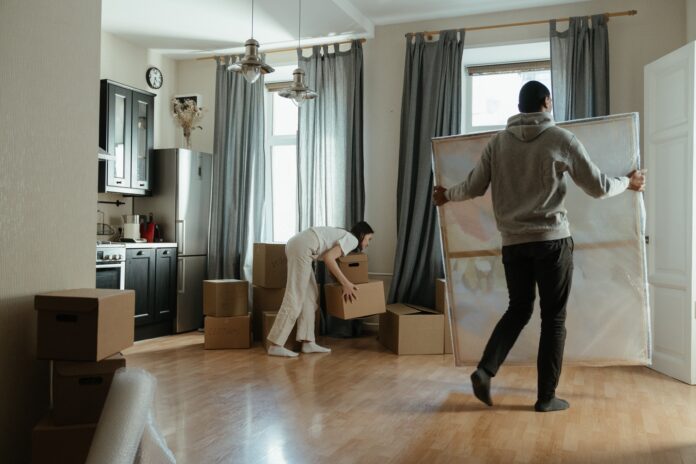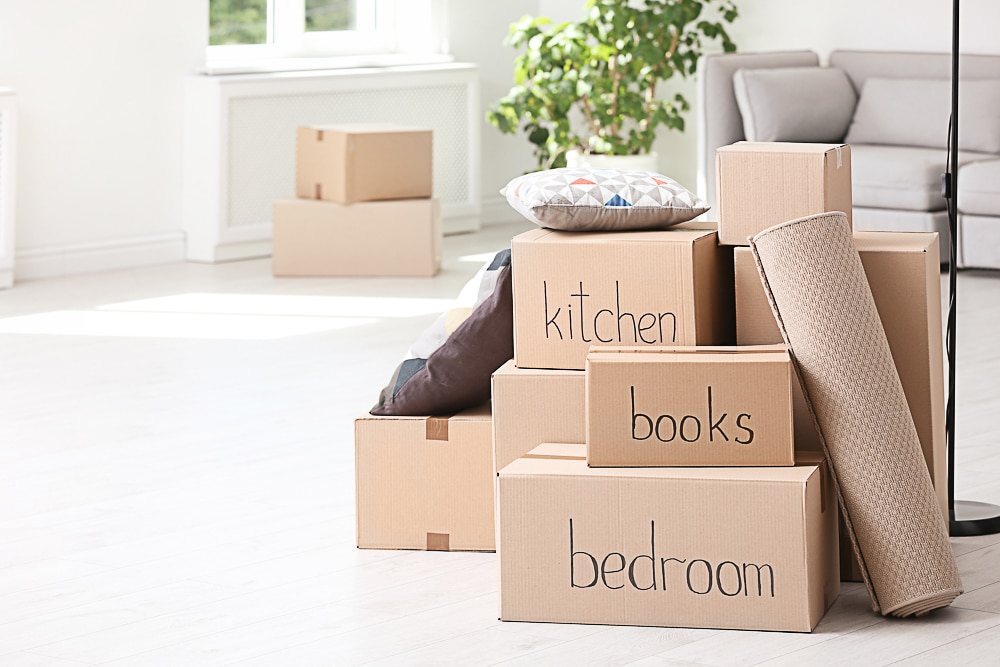Whether the motivation for the move is a new career opportunity or something entirely different, anyone who has moved before knows that it is a life-changing experience. And now, it is YOU who gets to experience it all. The time has come for you to say goodbye to your old home and move to a new one. Congratulations! It is going to be an exciting time. Plus, relocating to a different part of town or country often leads to the anticipation of good things and new beginnings.
Nevertheless, let’s face some facts: Moving into a new home is far from easy. It is often accompanied by stress, mental breakdowns, and jitters about whether you are making the right decision.
However, suppose you start early and stay prepared. In that case, you should be able to get through this mammoth process completely undamaged and ready to enjoy your new home. So, to help you prepare for an effortless move, we’ve compiled a quick list of the most important things to do when moving into a new home.
Get rid of the unneeded stuff.
You’ll be surprised at how much garbage you can accumulate in a few years. People are hesitant to get rid of old items, so they pile up. You are either deeply attached to something or believe it will be helpful in the future. However, throwing away all unusable belongings is best when moving into a new house because transporting a pile of junk to the new home would be expensive. Instead, rent a self storage unit to store your belongings or sell these items at a yard sale.
There’s a gimmick to deciding whether you can live without the things you’re holding onto because they might come in handy someday. Take two boxes; in one, place items you have only used once or twice in the last year. Put items in the other box you haven’t used in 18 months. These are the things that must be eliminated. Instead of throwing them away, ask your friends and family if they need them or make a donation.
Create an inventory
A typical home contains thousands of items, including decorations, furniture, cutlery, and clothing. Expecting to pack and move everything in a week will result in chaos when you unpack and search for essential items you need immediately. Always maintain an inventory of all your belongings and classify them. This will allow you to pack it more effectively, grouping related objects together. For example, you can fill all your hygiene products in one container and your cookware in another. Make sure to label the boxes, so you know what’s in which ones.
Packing by room is another efficient method; you don’t have to mix things in your residence. For example, keep the vases from the kitchen and the porcelain from all the baths in one box. This way, you’ll know which container should be opened to fetch what without unpacking the boxes at your new home. Ensure that each container is labeled with the room it is supposed to go to. Movers generally pile your belongings where you want them, so packing by room and classifying will help you untangle after your big move.
Employ movers
Begin your search for “house movers near me.” That’s correct. You must hire movers well ahead of the date you have set. Don’t wait until the last minute to book the preferred house movers. That can lead to issues such as a scarcity of accessible transportation or movers being unavailable on your preferred date. In either case, you and your family would be the only ones to suffer. While looking for movers online, you will almost certainly find an article or three with helpful moving tips (such as this one).
Establish repair priorities
Unless you’re moving into a new home with no previous owners, you’ll have some repair projects. While you don’t have to start working on these repairs immediately, making a list of what needs to be done will help put your property’s condition into perspective. It would be best if you had a general understanding of what these are based on your home visit, but it never hurts to walk around on your own and get a sense of what needs to be done.
Install a security system
In terms of safety, it is critical that you feel secure in your new home. That means different things to different people. But some stages include changing locks to prevent previous residents from gaining access, using a smart doorbell, installing cameras, or a full-fledged home security system. There are even tools available these days to help you assess the safety of your neighborhood and decide on the best course of action for trying to secure your new home.
Take care of your children and pets.
The safety and well-being of your children are of the utmost importance, especially if you have recently moved into a new home with a newborn baby. Keep your loved ones away from potentially dangerous areas, preferably in a room away from traffic. Arrange for someone you trust, such as your spouse or another elderly family member, to stay with your children. At the same time, you deal with moving companies, boxes, and fixtures.
When moving with pets, you must consider their needs as well. Your pets will need some time to adjust to their new surroundings. Secure all house exits (windows and doors) to prevent them from escaping.
Lastly, greet everyone with a smile.
Building a relationship with your neighbors is less about common interests and hobbies and more about simply being friendly to one another. Make a point of saying “hello” and smiling at everyone you meet. You are not required to mention that you have recently moved in. The goal is to lay the groundwork for an enjoyable relationship, and a toasty, sincere greeting upon first meeting is a great way to do so.
Conclusion
Moving can be a frightening experience, but it does not have to be! A new living situation can bring many new possibilities, new friends, and significant changes to your quality of life. Moreover, moving into your new home can be a pleasant experience if you follow the advice given in this article, and you’ll soon feel right at home.



















